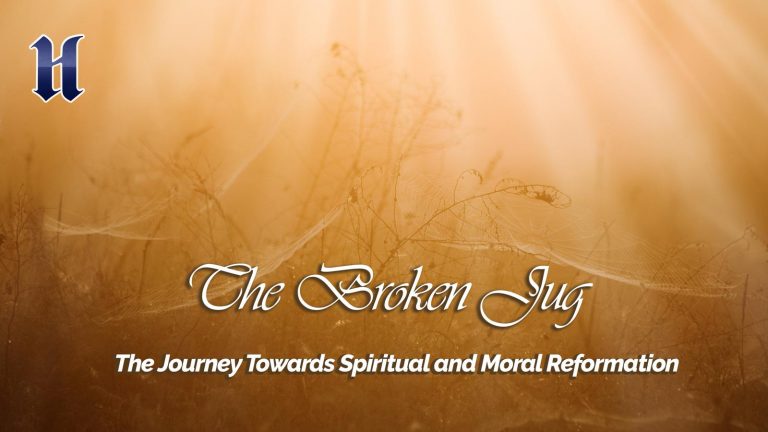Question: What are the good things that faith promises us? Is it possible to talk about differing degrees of feeling these beauties in one’s heart?
Answer: So far, much has been said about the beauties that faith promises in both worlds and the many ways to deliverance. Particularly, Bediüzzaman addresses this issue in detail in different parts of his works. When all of these are considered, it can be seen that faith provides a person with a very broad and immense view with respect to discerning and gaining insight into life and existence. For example, when a man with faith views creation, he sees it as a close friend and a sincere companion. Therefore, he does not feel any dread about the road or the companion. Thanks to the blessed light faith brings to his life, he sees the past and future as bright; he neither sees the past as a horrible graveyard, nor the future as a dark pit of death waiting to swallow him.
In fact, it is natural for people to have certain fears and anxieties about the future. But the hope and light brought by faith overcome these fears, because a person with a faith based on sound essentials understands that it is beyond human power to find a cure against such anxieties and finds a way to rid oneself of the suffering inflicted by their potential threat. Is the darkness of the grave and intermediary realm a worry? Faith will be a light there. Is passing the Sirat1 a cause of worry? Faith is a steed to make one pass over it like lightning. Is a person worried about the final reckoning? Faith is the soundest shelter to be saved from Hell. In this long journey of life, faith is like a truthful guide standing beside the road and promising safety and trust.
Death and the Ostrich
In fact, faith virtually bears the spiritual seed of a Touba tree of Paradise, as a person with faith leads a peaceful life even while in this world. It is through faith that one is freed from the fear of decaying into nonexistence. No matter what they say and how they approach the issue, it is not possible for a people devoid of faith to free their heart and mind from the worries of nonexistence completely. These anxieties and worries sometimes become so severe that they make one experience a hellish life while in this world. For the sake of ridding oneself from such depression, a person mostly plunges into entertainment and making merry. Sometimes by indulging in alcohol or using drugs and sometimes by indulging in carnal desires, they try to free themselves from worries depressing their soul, generated by the thought of becoming nothing and decaying into soil. In other words, they try to plunge into oblivion by lotus eating. This resembles an attempt to hypnotize oneself. Although these may seem to console a person temporarily, they are only vain efforts with no true or lasting help. As burying one’s head in the sand has no use for being saved from a stalking hunter, it is impossible for such entertainments to save people from what they fear the most. The only thing that will save them from all of these worries and take them to the safe haven of deliverance is faith, which is a safe ship, truthful guide, and a powerful source of hope.
No matter how sinful individuals are, they will cherish hope about a good ending, assuming that they really believe; this truth is inherent in the nature of faith. As a matter of fact, according to Ahl as-Sunnah wa al-Jama’a (Sunni way of belief) belief, no matter how sinful a person is—with the condition of having faith—he or she will not be punished with Hellfire eternally.2 If one possesses even a grain of faith, then sins are not inherent in that person. Sins do not originate in faith. On the contrary, they stem from not taking the stance true faith necessitates. In other words, sins are viruses that make their way into a person through the holes left in one’s faith. As for unbelief, sins and transgressions spring from its very nature. For this reason, they are essential to unbelief. To reiterate, all mainstream Muslims agree that even a person with a grain of faith will enter Paradise. That is, may God protect us, even if a man (or woman) commits adultery, theft, or some other sin, he will attain eternal bliss in the end, given that he has faith. If he repents for his sins and God accepts his repentance, that person may go to Paradise without being punished in Hell. All of these are beauties which faith promises and cannot be replaced by anything else. Faith, therefore, is a very powerful source of hope. With this endless source of power, it is always possible to be freed from one’s narrow personal world and set sail to the beauties of eternal life.
Amity as Reflected in Realms Beyond
Faith makes a believer a person who inspires trust to one’s environment, even to the entire creation. It makes one’s narrow world into a universal one. True Muslims see the universe as a cradle of amity, and thus see everybody as brothers and sisters to a certain extent. As Ali ibn Abi Talib stated, they see others as brothers and sisters, Muslims being in faith and others being in humanity. Surely, their perspective of believers is very different, owing to the belief that they will be together in the intermediary realm, on the Day of Judgment, and the final reckoning. People with such faith will not reduce their relationship with their environment to opportunistic expectations from others; on the contrary, they will try to establish a bond and relationship that will continue in the next world as well. If such a bond and relationship have a different value in God’s sight, then this will let believers become closer to God and make them succeed in both worlds, which is another promise made by faith. It is possible to see the Prophet’s blessed statement, “God’s hand (of support) is with the community,”3 from this perspective as well. That is, as God Almighty protects people who act with a collective spirit in this world from evils and grants them success, He will grant exceptional blessings to them altogether. In other words, acting in the collective yields not only worldly fruits, but otherworldly ones as well. As it can be taken from the Divine decree, “On the Day when the earth is changed into another earth…” (Ibrahim 14:48), from atoms to celestial bodies, everything will undergo change. Therefore, a person’s feelings and thoughts will gain a different nature, and good works done in this world and amicable relations will gain a different profundity there. Who knows how people will enjoy it and how lovable the relationships will be with other believers. May be encountering them will effect such relief in your heart that you will consider it equal to the blessings of Paradise. In fact, as it is stated by the noble Prophet, peace and blessings be upon him, God prepared in Paradise for His righteous servants, blessings that no eyes have seen, no ears have heard, and that have never occurred to any human heart.4 The blessings God will grant in Paradise are beyond imagination. And those blessings are nothing but many times transformed states of the good works that you did in this world, appearing before you in a different nature.
As for the second part of the question, we can briefly make the following explanation: everybody feels and experiences these beauties promised by faith in accordance with the immensity and depth of their own faith. Some only feel it in the theoretical level of what they heard from their teachers. However, this is only the beginning for them. Some support their theoretical information with truthful knowledge and deep reflection, base it on sound essentials, internalize it through religious practices and worship, and transform it into knowledge of God by experience. In other words, they start with theoretical information, progress to certainty based on knowledge, and then ascend to certainty based on seeing, or ayn al-yaqin as it is termed. After reaching the level of ayn al-yaqin, the secret of ihsan5 unfolds. That is, the consideration of being seen by God at all times and a high consciousness of His presence as if one sees Him permeate a person’s behaviors, and he leads a life at this level. You can understand it as abandoning the animal level of life, leaving behind physicality, being freed from the cage of the body, and journeying to the lofty life led at the level of the soul. There, everything is seen more immensely, clearly, and brightly with its exclusive charms and is sensed. For this reason, one does not care about the physical and worldly life at such a high level. One stays in this world for the sole reason that God commanded so, fulfilling his or her duty. And when the time to be discharged from duty comes, a different serenity is experienced; death is met with the joy of a celebration, and one walks toward the beauties promised by faith, and meets God.
1. The bridge over Hell leading to Paradise.
2. Al-Taftazani, Sharh al-Maqasid, 2/229–231
3. Sunan at-Tirmidhi, Fitan, 7
4. Sahih al-Bukhari, Badu’l Khalq, 8; Sahih Muslim, Iman, 312
5. Ihsan, or perfect goodness, denotes worshipping God as if one sees Him and full awareness of being seen by Him.
This text is the translation of “İmanın Vaat Ettikleri.”






